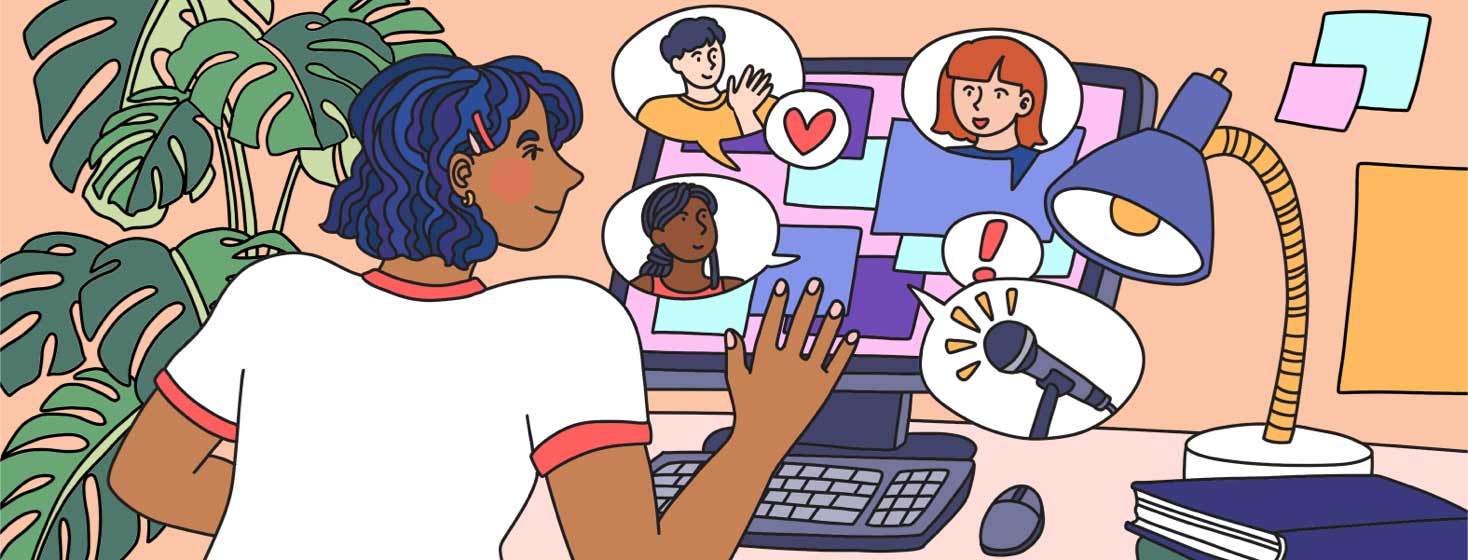My Lupus Advocacy Journey
I thought when I got diagnosed with lupus I would receive a "welcome packet" at the doctor's office, like you do when you get accepted to college. I thought my doctor would provide a guide that was filled with all the information on lupus: what to eat, what not to do, what should I avoid, what were the symptoms I should look out for, what was the prognosis, etc. Or even a pamphlet filled with facts and statistics.
But I got nothing other than here is your diagnosis, it’s a chronic autoimmune disease where your body is basically attacking itself, there's no cure, and these are the medications that we are going to start you on. See you in a few weeks.
I was left in tears with the fear of the unknown. I couldn't believe it and was so thankful that my boyfriend at the time (now husband) was there with me at that appointment.
Our own lupus research
No one in my family has Lupus or any autoimmune issues so when I got diagnosed with lupus it was a learning experience for me, my family and friends. I had only heard about lupus because of Selena Gomez. She was an actor that I grew up watching so I saw stuff about her life online or in magazines. But I didn't really know the extent of what lupus was.
Once we got home we started to do our own research on what lupus was and really tried to understand what this autoimmune disease was. Thankfully there was so many resources online to read from. We also tried to find books all about lupus. It was really hard trying to digest all that information. It really was information overload.
Looking for patient stories
Since I didn’t know anyone in real life with lupus, I also decided to join Facebook groups. I wanted to hear stories from other lupus warriors. It’s very different when you're reading facts vs hearing/reading first hand experiences on lupus challenges. I wanted to find out how everyone was learning to cope with their diagnosis, what they learned, any regrets, etc. Stuff that facts won’t be able to tell you.
Since this was all still very new to me, I took the more of the fly on the wall approach. I didn't post anything in the Facebook groups, never commented but did read every post and comment that popped up on my feed. I applauded the brave women and men that shared their story. I felt a range of emotions from sadness, to anger to contentment, to happiness.
I really learned a lot through the resources and from others online and was really thankful that I got diagnosed in 2017 versus the 1950s. I don't know how people back then went through stuff like this and how they tried navigating the future.
Should I share my story?
The first few years was definitely a struggle. I had to learn how to navigate this lupus diagnosis while still working full-time and trying to have a social life.
Fast forward a few years, I got to the point in my life where I felt like I was ready to share my story online so I started my instagram account. I also wanted to meet other lupus warriors while also spreading awareness about lupus. I didn't know if people would follow me or even wanted to hear my story, but I was like if I could help just one person than this is worth it. I wanted to let others know that they didn't have to be alone in their journey.
Getting a lupus diagnosis was definitely scary, but with the right resources and guidance it makes everything a little less daunting.
Opening doors with advocacy
I didn't even know at the time what patient advocacy was. But that's what I became. I wanted to provide information about lupus, first-hand experiences, and offer support to other lupus warriors and their families. Becoming a patient advocate has allowed me to meet so many lupus warriors from all over the world and allowed me to share my story through podcasts, articles, blogs, etc.
Social media really has been amazing and has opened doors that I didn’t even know was possible. I truly am thankful and am so glad to be a part of the lupus community.

Join the conversation